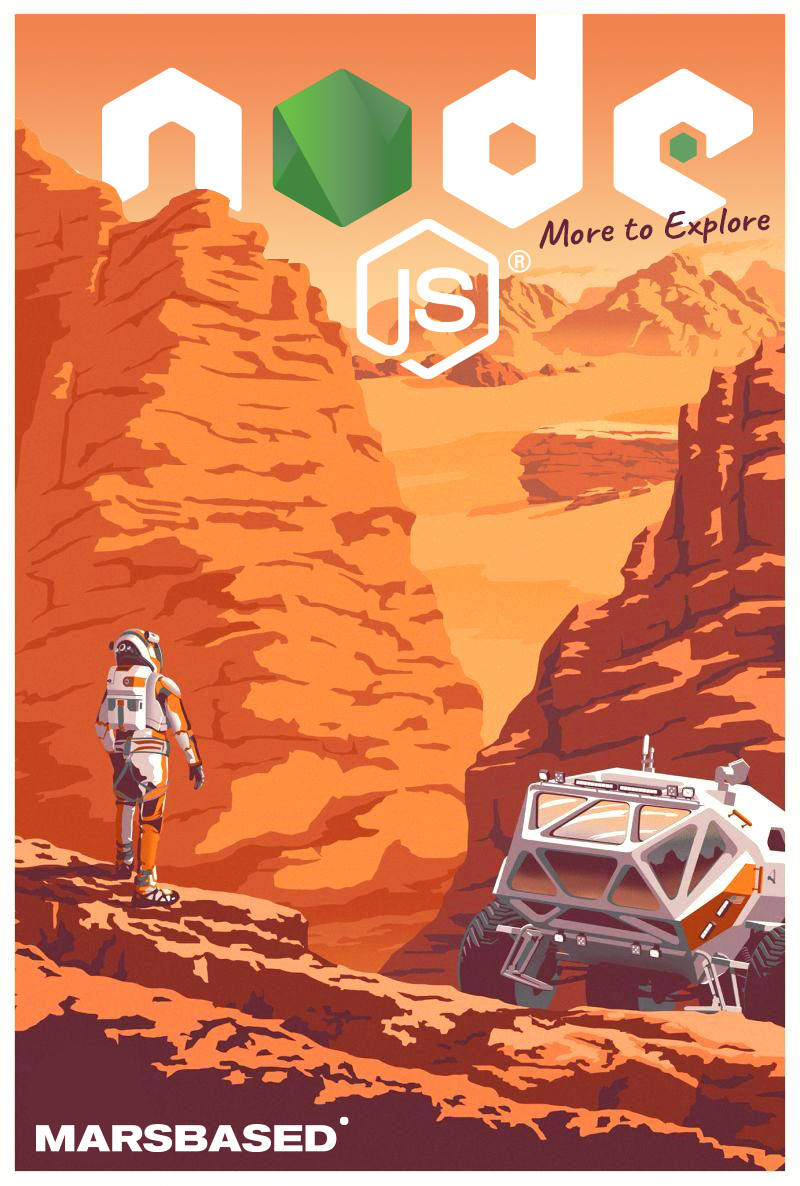MarsBased loves Node.js
Diario del capitán, fecha estelar d193.y38/AB

2019 is bringing many changes to our company. As a technology company, we always review our techstack every year to keep up with the market.
We would like to announce that we're officially adopting Node.js as a de facto development environment for our backend projects, in addition to Rails.
We are a group of senior developers experts in web development, and as such, we're no strangers to new technologies.
In fact, we're very familiar with Node.js. We have been using it in a couple of projects since 2016. That year, we started working for our biggest client to date, ClearPeaks, a Business Intelligence consultancy from Barcelona, for whom we developed JavaScript full-stack solutions to complement their BI products.
Later on, we have used Node.js in other projects, and slowly, it permeated into our techstack.
Even though Ruby has been selected as Server-side Programming Language of the Year 2018 by the W3Techs, we have been seeing a market shift in the past few years.
More and more technological companies are adopting Node.js to be able to keep a techstack based on a single language (JavaScript), using a combination of Node.js in the back, and React or Angular in the frontend.
In terms of hiring, using a single-language techstack is also a great advantage in competitive markets. You can focus on one technology, instead of having to hire backend and frontend people separately. Where once you needed a Java peep for the backend and a JavaScript one for the frontend, now you can do with a pure-JS fullstack developer.
First of all, we are well-known as specialists in Ruby on Rails development. Our laser-focus in the very few technologies we have been using hitherto has earned us a reputation and many clients over the years.
Our team can safely say that we have mastered Ruby and all of its frameworks and gems. We know Ruby, Rails, Sinatra, Rspec, Active Admin, Middleman and the endless list of tools inside out.
Secondly, in the last years, we have been receiving many project prospects which required Node.js. Most of them, we had to decline, as it was not our focus and we didn't have enough people in the company proficient in Node.js.
Now, we have enough capable developers, a solid methodology to work with Node.js & Express and the organisational capacity to focus on new technologies.

Adopting Node.js in the backend does not mean replacing Ruby at all. In fact, quite the contrary.
First of all, we will choose the best technology for each project after a careful inspection of the product roadmap, expectations and the strengths and weaknesses of every language and framework we can use.
We will keep using Rails as our primary choice for fullstack projects. Also, in technologically-agnostic projects where the client doesn't really force us to use one language or the other, we might still want to leverage our knowledge of Ruby to reduce the time-to-market and keep things more flexible.
Conversely, we will use Node.js in projects where the client prefers a single language to be used, in projects where the API is the key part of the project, projects where there's a strong JavaScript layer in the frontend (React, Vue, Angular) or in data-intensive projects that require real-time calculations in highly scalable environments.
The fact that we're incorporating Node.js as a first-class citizen in our toolbelt allows us to choose the best tool for a broader range of projects.
Previously, we had to give a pass on certain kinds of projects because we felt like Rails wasn't the right fit for them. By doing that, we preserved our good reputation of experts in Ruby on Rails, by keeping our focus on a narrower choice of technologies.
We are experts in web development, using Node.js, Ruby on Rails and other trending technologies to help medium- and big-sized companies, solopreneurs, NGOs and big corporations alike.
Let's get to know each other and schedule a brief call with our team to see how can we boost your company using technology and agile methodologies.

We want to share with you how we built a Node.js API for a client, describing some patterns and javascript conventions we used.
Leer el artículo
We want to share with you how we built a Node.js API for a client, describing some patterns and javascript conventions we used.
Leer el artículo
If you want to join the Martian crew working with Node.js, this is your chance to do it! Join our growing team!
Leer el artículo